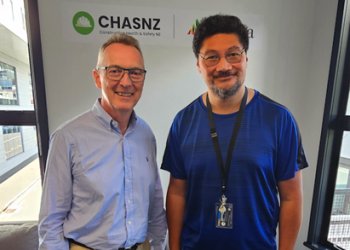IMHO: Learning to lead with purpose – and price

What’s your service worth? Dr Stephven Kolose reflects on value, contribution and learning to say no in the boardroom.
OPINION: In my second one-on-one meeting with my mentor, George Adams CFInstD, we got into the thick of it and went deep on some big topics – covering everything from my value proposition to goal setting, writing board reports and more.
We discussed my goals and what my value proposition looks like as director, which included how my goals are shaped by personal values and skills and what makes me appealing to other boards, based on my unique experiences and expertise. George’s advice was that identifying these elements takes skill because they differ for every board member.

Mentor George Adams CFInstD and mentee Dr Stephven Kolose
I already had some idea of my value proposition. I value work ethic, education, a strong moral compass and contributing to my profession, community and culture. But what really stumped me was the question: “How much does that skill and experience cost, and can I put a dollar value on the package I bring to the table?”
For me, the notion of what my “cost” looks like sits outside of being on boards and encompasses things like public speaking gigs at conferences, presentations or lectures. But ultimately, he was asking what I think boards, organisations and event organisers should pay for my knowledge and skills considering the value delivered to attendees or clients, who often pay substantial fees to attend. This gave me so much food for thought, as most of my work is unpaid in the not-for-profit space.
As a researcher, I spend a lot of time writing so I’m not too fazed by board reports. But let’s face it, it’s a skill and board reports are time-consuming. I'm going to preface here that it's not the board's role to write reports, but it is their job to know what good looks like and for me to understand what to look out for.
George gave me some great tips to make the process as precise and efficient as possible. He described board reports as a “story” that follows a similar script, like a TV show. For instance, a show might have mystery, crime, a hero and antagonist, along with a chase and an outcome or resolution.
The examples he gave me were the TV shows, CSI and Broadchurch. CSI is fast-paced with half-hour episodes, whereas Broadchurch is layered with details slowly unfolding over a season. The analogy is that CSI represents what a board report should be like, and Broadchurch represents what a board report should look like for operations – in other words, brevity versus detail. Using this way of thinking about board reports really helped me understand how to present information efficiently, ensuring clarity and engagement while avoiding unnecessary complexity – and to watch Broadchurch!
Being mentored isn’t the same as being at school, but if you want to be a director you need to love continuous learning. So, that means I have homework to complete before the next meeting. This includes coming back to my next session having developed a service rate (monetary value) that represents all that I bring to a board, and secondly, learning to say ‘no’ when my time is stretched to oblivion.
Upon reflection, these are very difficult aspects for many Pacific people, but it’s also important if we’re to build our reputation and understand our worth in the boardroom.
Dr Stephven Kolose is a proud Samoan (Matautu-Lefaga, Leauva’a), born and raised in Dunedin. He now lives in Auckland with his wife Gloria and their five children. Stephven is one of 10 mentees selected for the inaugural Tautua Pasifika Mentoring Programme – a platform for aspiring Pacific leaders seeking a future in governance. This is the third in a three-part blog series reflecting on his journey.